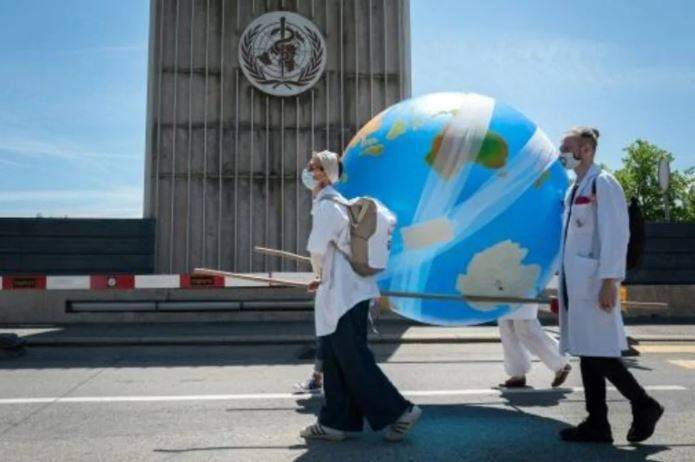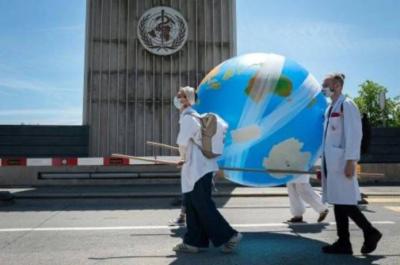On Monday, World Health Organization (WHO) member countries agreed to strengthen the organization's capabilities after a health crisis revealed its shortcomings, a decision that the Director-General regarded as "historic." He emphasized the necessity to reach a convention on pandemics to avoid repeating past mistakes.
More than a year after the onset of the COVID-19 pandemic, which has claimed over 3.5 million lives worldwide, member states adopted a resolution aimed at enhancing the WHO's capacity, following a week of discussions. However, countries still need to clarify the details of the reform, as some nations are reluctant to grant the organization more authority to protect their national sovereignty.
In any case, members decided to postpone discussions on the need to adopt a treaty or agreement on pandemics until November, an instrument sought by the WHO and several countries, notably France and Germany, for weeks. Director-General Tedros Adhanom Ghebreyesus stated at the end of the World Health Assembly that such an international binding agreement "would make the greatest contribution to strengthening the WHO and global health security."
He noted that currently, "pathogens have more power than the WHO." Nevertheless, he praised the decision to enhance the WHO’s powers, which was adopted on the last day of the 74th World Health Assembly held online from Geneva, considering it "historic."
Debate centered on the agency’s reform and its capacity to coordinate responses to global health crises and manage future pandemics, as this was the main item on the agenda, especially in light of the organization's and the international community's failure to prevent the spread of COVID-19.
During the week, countries reviewed reports from several independent experts that highlighted the weaknesses of both the WHO and countries in facing COVID-19 and called for wide-ranging reforms to alert and prevention systems. One report indicated that the pandemic could have been avoided, arguing that the WHO was too slow to declare a public health emergency of international concern, the highest level of alert, which it finally did at the end of January 2020.
Ghebreyesus announced that the reports "agree that the world needs a stronger organization at the heart of global health architecture."
**Permanent Funding**
He stressed that "the WHO cannot strengthen its capabilities without permanent funding." Currently, the organization secures 16% of its budget from mandatory contributions by its members, while the remainder relies on voluntary contributions from public and private donors who dictate how the funds may be utilized.
The resolution, particularly proposed by the United States and the European Union, remains vague in this regard, asking countries to "seek to ensure adequate, flexible, sustainable, and predictable funding for the WHO's program budget."
On another note, the text indicates that preparedness for and response to health crises "is primarily the responsibility of governments, which play a crucial role in this regard." However, it acknowledges the "key leadership role" that the WHO plays within the United Nations system in health crises, clarifying that the international community’s aspirations "generally exceed the existing capacities" of the organization.
The resolution calls for the establishment of a working group to enhance preparedness and response within the WHO to emergency health situations. This working group, which all member countries can participate in, will consider findings from various reports and provide recommendations for the 75th World Health Assembly.
Under this decision, the Director-General may present his own proposals for improving the health alert system, particularly through regional mechanisms. The text requests the WHO to launch a pioneering project to assess each country's readiness for pandemics by their peers, similar to the system in place within the Human Rights Council, and encourages countries to enhance their public health capacities, specifically to "increase their ability to monitor new risks."
The resolution recommends "timely reporting to the WHO of public health information" and "enhancing the WHO's ability to swiftly and appropriately assess epidemic outbreaks that may constitute a public health emergency at the international level, through prompt action."




